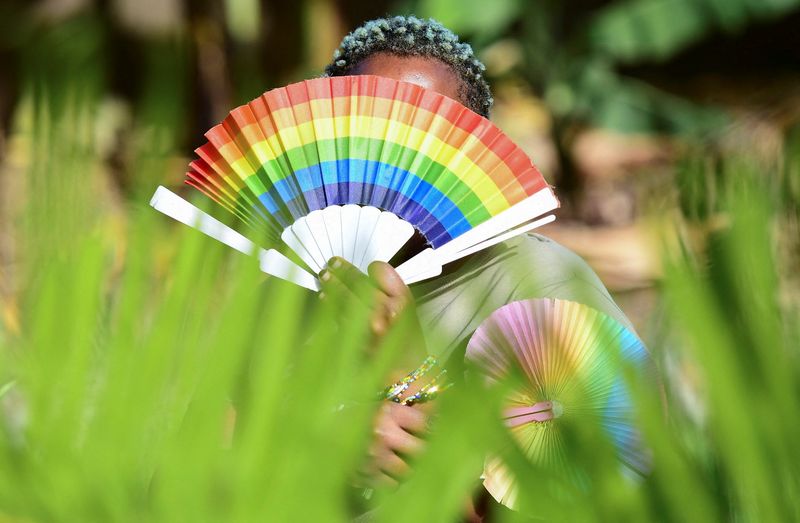KAMPALA (Reuters) - The consideration and passage by Uganda's government of one of the world's harshest anti-gay laws have unleashed a torrent of abuse against LGBTQ people, mostly committed by private individuals, rights groups said on Thursday.
The Anti-Homosexuality Act (AHA), which was enacted in May, prescribes the death penalty for certain same-sex acts. At least six people have been charged under it, including two accused of the capital offence of "aggravated homosexuality".
But the report, authored by a committee of the Convening for Equality (CFE) coalition, said the main perpetrators of human rights abuses against LGBTQ people this year - including torture, rape, arrest and eviction - were private individuals.
It said this pointed to the way the law and the rampant homophobic rhetoric that preceeded its passage earlier in the year had radicalized the public against the LGBTQ community.
For example, the report said mob-aided arrests had become increasingly common "because AHA has put LGBTIQ+ persons on the spot as persons of interest, and the public seems to be the custodians of enforcing the witch hunt."
Between Jan. 1 and Aug. 31, researchers documented 306 rights violations based on the victim's sexual orientation and gender identity, with state actors the perpetrators in 25 of those cases.
By contrast, reports by rights activists in 2020 and 2021 found that state actors were responsible for nearly 70% of the rights violations documented in those years. The report did not provide comparative figures for 2022.
Ugandan Information Minister Chris Baryomunsi was not immediately available for comment.
The report's authors said they had documented 18 instances in which the police conducted forced anal examinations of people in their custody to gather "evidence" of homosexuality.
"Surviving a forced anal examination at police is something that lives with you forever," it quoted one survivor as saying.
Police spokesman Fred Enanga said he had not yet read the report and could not comment.

The report cautioned that its statistics could not be considered exhaustive given the difficulties LGBTQ people face reporting violations.
The climate of fear and intimidation unleashed by the law has also led to rising cases of mental health conditions in the LGBTQ community, including suicidal thoughts, it said.